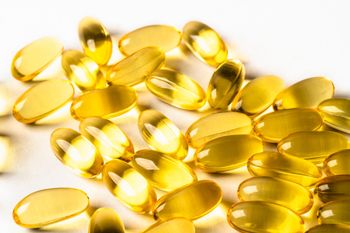
GOED Responds to Poor Results of Omega-3 Heart Health Study
A study published last Sunday in the New England Journal of Medicine is receiving ample response from omega-3 industry organizations. Using a population cohort of nearly 5,000 people who supplemented with omega-3-enriched margerines for 40 months, researchers behind the study concluded that 'Low doses of omega-3 fatty acids did not significantly reduce the rates of cardiovascular end points.' This was determined to be the case with eicosapentaenoic acid (EPA) and docosahexaenoic acid (DHA), and alpha-linolenic acid (ALA).
A study published last Sunday in the New England Journal of Medicine is receiving ample response from omega-3 industry organizations.
Using a population cohort of nearly 5,000 people who supplemented with omega-3-enriched margerines for 40 months, researchers behind the study concluded that 'Low doses of omega-3 fatty acids did not significantly reduce the rates of cardiovascular end points.'ÃÂ This was determined to be the case with eicosapentaenoic acid (EPA) and docosahexaenoic acid (DHA), and alpha-linolenic acid (ALA).
The Global Organization for EPA and DHA Omega-3 (GOED; Salt Lake City) has since responded to the study, noting several factors that may have influenced the negative results.
'The study...s authors have stated that such findings may have been affected by multiple unique variables, most notable the administration of cholesterol- and blood pressure-lowering treatments to all subjects during the study...s duration,'ÃÂ said GOED in a recent press release.
GOED also cites the 'relatively low daily dose'ÃÂ of EPA and DHA which was used. 'While 400 mg of combined EPA/DHA provides a sufficient dose for most healthy individuals, previous clinical studies in individuals having suffered a heart attack suggest that 1,000 mg+ of EPA/DHA decreases the incidence of secondary cardiovascular,'ÃÂ said GOED.
Newsletter
From ingredient science to consumer trends, get the intel you need to stay competitive in the nutrition space—subscribe now to Nutritional Outlook.





